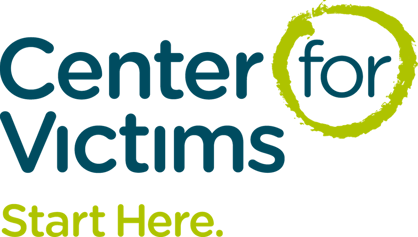
Center For Victims
The most comprehensive victim service provider in Allegheny County, PA. Our mission: supporting victims, healing trauma, and creating social change for a more peaceful community.
One of our most loved programs is our Expect Respect, teen dating/healthy relationship education in area middle schools. In partnership with University of Pittsburgh, our staff and master's level students hold groups with students to educate, raise awareness, and start conversations.
Financials
Programs
Community Outreach
Center for Victims offers crisis support and intervention services in the area of family and community violence and conflict. Example include child-parent, significant others under one roof, husband-wife, neighbor to neighbor, adolescent fights, etc. When a referred incident of conflict occurs, our support team responds within 24 hours. The primary goal of intervention is to assess the nature of the conflict, meet with all parties involved and make recommendations based on the assessment of the situation and the needs of the participants. Examples of recommendations and/or referrals that may be made include: Referrals to other CV programs and services such as Mediation, domestic violence counseling and shelter, therapy, and/or legal advocacy, Referrals to other community based Mental Health services, Links to school and community resources, and more. This program will provide a seamless connection to other CV services for those impacted by sexual assault, domestic violence, homicide or personal and community violence.
Restorative Justice Program
Victim Offender Dialogue (VOD) is a service that seeks to make things as right as possible for everyone after a crime occurs. In a VOD, victims and offenders meet face-to-face in a safe and structured environment with trained facilitators to talk about what happened, who was harmed, and how the harm can be repaired. The victim can ask an offender questions and receive answers about what happened and why, tell the offender how the crime affected them, and help decide what needs to happen in order for everyone to move forward. The offender can agree to take steps to repair the harm created by their crime by paying restitution, completing volunteer work or making other amends. Referrals to this program are handled by the Juvenile Justice System.
Legal Advocacy and Accompainment
Navigating the legal system can be difficult for crime victims. The process is often lengthy and confusing. Center for Victims’ staff explain the steps in the process and attend legal and court proceedings to support the victim and the significant people in their lives. From police or prosecution interviews and the first court hearing through the sentencing, or disposition, of the offender, staff is there to answer their questions, address their fears, protect their rights, and help victims through the experience.
Canine Assisted Advocacy
The Canine Assisted Advocate Program supports and assists in minimizing the stress and trauma associated with the experience children and families live through following the disclosure of child physical/sexual abuse and neglect, exposure to domestic violence, and the loss of family members and caretakers to homicide. A highly trained dog is paired with a specified handler who has had extensive training in victim advocacy work to move, in tandem with the child and family through medical, investigative, prosecutorial, and treatment systems. The initial contact occurs at the forensic interview. The child and family are introduced to the dog and handler. The child is able to connect with the dog and is shown how to direct the dog to perform some basic tricks. The presence of the same dog and handler throughout all of the above mentioned systems, provide the child a means of soothing and moderating the internal experiences and external manifestations of the re-telling, and often re-experiencing of the traumatic events.
Counseling and Therapy
Center for Victims provides a broad range of therapeutic services to victims and witnesses, their families and other significant people in their lives. When people have been victimized and exposed to trauma, their sense of safety and well-being may be affected. A traumatic experience impacts the entire person — the way they think, the way they learn, the way they remember things and how they feel about themselves and the world around them. Center for Victims strives to lessen the negative impacts by empowering victims to understand the trauma they are experiencing, find new ways of coping and move toward healing.
Through an assessment process, staff, along with the client, determines the type and level of care that will most effectively address the impacts of trauma. Crisis Counseling is provided to both individuals and families to help manage current stressors and stabilize the crisis. The licensed clinical team provides an initial evaluation, short-term treatment for individuals and groups, ongoing individual and family therapy, ongoing group treatment and art therapy.
Healing Rivers Project
The Healing Rivers Project is an interactive, guided educational experience that allows participants to walk through an interactive exhibit that will focus on understanding and recognizing the impact of traumatic experiences caused by violence, along with corresponding strategies for healing and well-being.
As a complement to this exhibit, experiential learning opportunities and workshops will be offered to reinforce the educational lessons and will include opportunities to experience firsthand mindfulness, yoga, relaxation techniques, healthy cooking and nutrition, gardening, and creative expression through music and art. These experiential opportunities will help participants to expand their coping and wellness strategies, build resiliency and promote personal well-being.